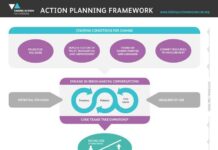Researchers Question the Utility of an ADHD Diagnosis
A new article examines the usefulness of the ADHD diagnosis and suggests alternatives
How Helpers Empathize may Affect Their Personal Well-being
Researchers distinguish between two different forms of perspective taking and examine their impact on helpers’ wellbeing.
United Nations Report Calls for Revolution in Mental Health Care
In a new report, the United Nations Special Rapporteur on the right to health, Dr. Dainius Pūras, calls for a move away from the biomedical model and “excessive use of psychotropic medicines.”
Study Explores Sexual and Intimate Partner Violence in College Women with Disabilities
A new study explores sexual violence and intimate partner violence in college women with mental health related disabilities.
Physical Inactivity Associated with Worse Cognitive Functioning in Psychosis
Higher levels of sedentary behavior are associated with poorer cognitive functioning in patients diagnosed with schizophrenia.
Music Therapy Interventions Reduce Depression Symptoms in Dementia
Therapists can use music to meet the emotional and social needs of individuals with dementia.
Study Highlights Importance of Social Interactions in Psychosis Recovery
Study finds frequency of social interactions predicts long-term remission in first-episode psychosis.
Racism Linked to Poor Health Outcomes in Children
New study finds children who have been exposed to discrimination show higher likelihood of anxiety, depression, and ADHD.
Food Insecurity Linked to Mental Health Globally
Global analysis of 149 countries finds food insecurity is associated with poorer mental health.
Childhood Adversity May Increase Risk of Suicide
Swedish study suggests experiencing adversity in childhood is linked to dying by suicide as an adolescent or young adult.
Training Nursing Home Staff in Understanding Needs Can Reduce Antipsychotic Use
A new study published in JAMA Internal Medicine, the largest study of its kind, has shown it is possible to reduce the use of antipsychotics in nursing homes, by engaging their staff in a training program designed to target residents’ strengths and their unmet needs.
New Findings Suggest Masculinity is a Risk Factor for Suicidal Thinking
Men who report being self-reliant may be at greater risk of suicidal thinking.
Reducing Overuse of Low-Value Treatments
Researchers provide an action-planning framework to engage providers in the reduction of low-value healthcare.
Physical Activity Predicts Fewer Symptoms of Depression in Children
An article published in Pediatrics is the first to examine the relationship between physical activity and depression in middle childhood (years 6 to 10) longitudinally.
Danish Study Finds Better 10-year Outcomes in Patients Off Antipsychotics
Study finds that 74% of patients with a psychotic disorder off antipsychotics at end of 10 years are in remission.
An Alternative Perspective on Psychotherapy: It is Not a ‘Cure’
Kev Harding argues against conceptualizations of therapy as a ‘cure’ to an ‘illness’ and instead offers alternative approaches.
Collaborative Care Effective for Older Adults with Depressive Symptoms
A new study suggests that depressive symptoms in older adults can be improved with non-invasive behavioral activation techniques. These approaches appear to have a preventative effect, serving to prevent further depressive symptoms from developing.
Despite Increase in Treatments, Prevalence of Mental Health Issues Climbs
Findings show that despite increases in treatment availability, the prevalence of mental health issues has not decreased.
Transition into Poverty May Worsen Child and Maternal Mental Health
Transitioning into poverty linked to behavioral issues in children, but may be mitigated by mother’s mental health.
New Medications Fail to Show Efficacy for Alzheimer’s Disease
Three phase III clinical trials assessing the efficacy of Lundbeck’s investigational drug idalopirdine for Alzheimer’s disease have failed
Many Patient Advocacy Organizations Are Funded By Industry
New research investigates the financial conflicts of interest (FCOI) of patient advocacy organizations (PAOs) in the United States.
BPS Releases Review of Alternatives to Antipsychotics
BPS releases report encouraging behavioral interventions for people with dementia, rather than antipsychotics
Pets Play Central Role in Management of Mental Health Problems
Individuals with long-term mental health conditions identify pets as valuable supports in their daily lives.
Post-Election Considerations for Users and Survivors of Psychiatry
A variety of scenarios of social and economic collapse have gone through many of our minds since Election Day. Insurance companies and pharmaceutical companies want to keep people on drugs, but what if there was no government subsidy for those who can’t pay?
Study Finds Sexist Attitudes Linked to Poor Mental Health in Men
Adherence to stereotypically sexist masculine beliefs such as self-reliance, power over women, and playboy behavior were linked to poor mental health outcomes

































